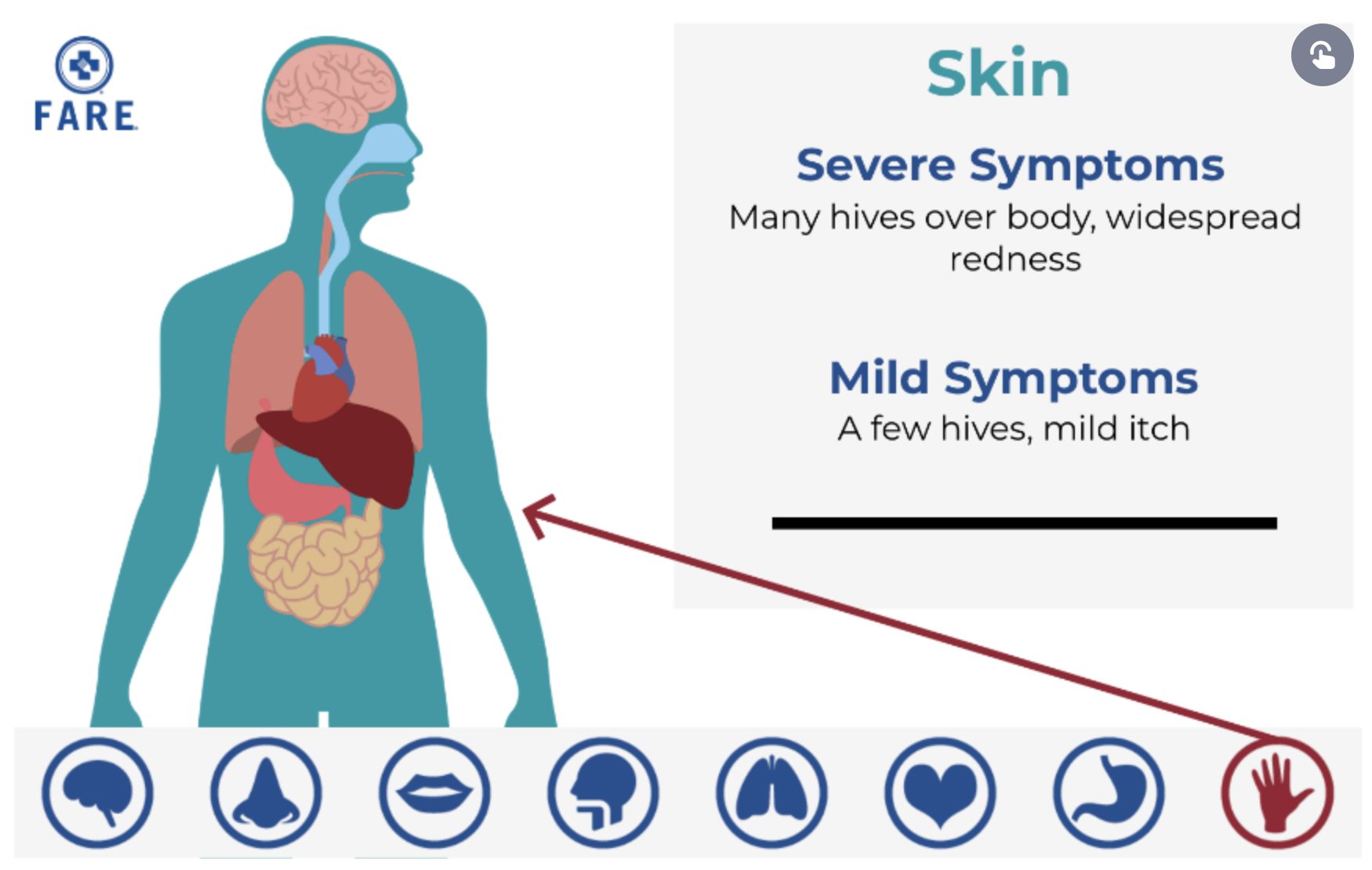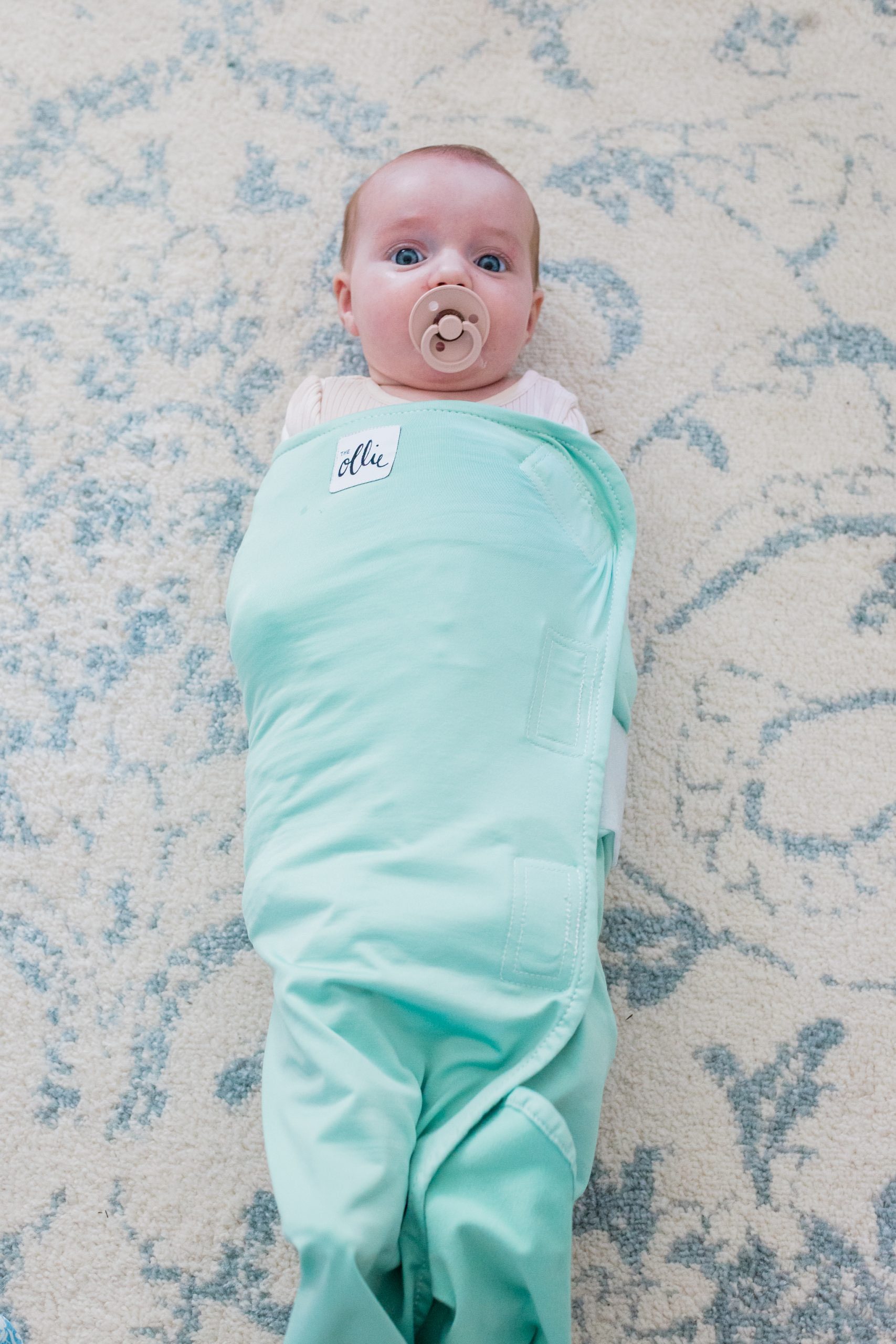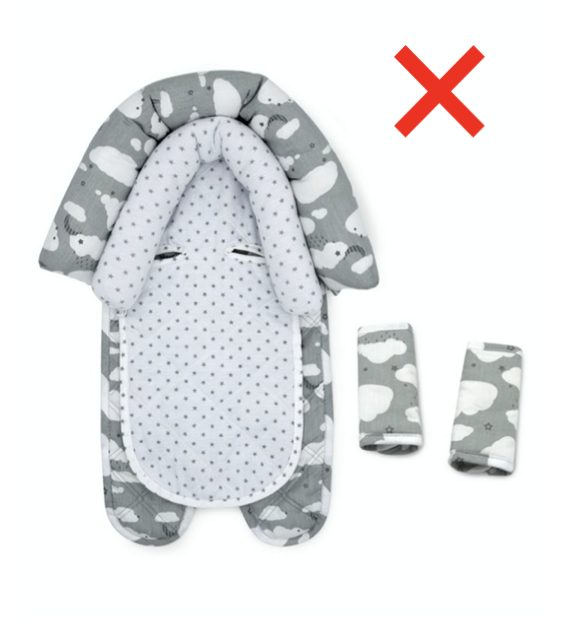Over the past decade food allergies have been on the rise in our country. According to Food Allergy Research & Education (FARE) 1 in every 13 kids has a food allergy! Food allergies are serious – they can be life threatening, life altering and inconvenient. Continue reading below to learn more more about food allergies from a pediatric allergist RN.
written by: Natalie Hnatiuk, pediatric allergist RN
After switching from working as a bedside nurse in the Neonatal Intensive Care Unit (NICU) to an outpatient allergy clinic, I not only had to learn a new clinical skill set but educate myself on the complexity of food allergies. I think it is important for parents to understand the basics of food allergies, when to seek help and how to prepare for an allergy appointment if needed. Keep reading below to learn more about food allergies.
Food allergies: what are they?
A food allergy develops when your body’s immune system detects and tries to destroy a food protein. What does that mean? Well your body’s defense and protection mechanism is the immune system. When a threat, like a virus or a bacteria, enters the body, the immune system attacks it to fight off infection. In the case of a food allergy the immune system misidentifies a food protein as a threat and tries to attack it. This can lead to a potential life threatening reaction. Food allergies are different from food sensitivities or intolerances.
How do food allergies develop?
The development of a food allergy is still not completely understood by scientists. If there is a family history of food allergies or other allergic responses (eczema or asthma) the chances for developing a food allergy are greater.
Most common food allergens in the U.S.:
- Milk
- Egg
- Peanut
- Tree nuts
- Wheat
- Soy
- Fish
- Shellfish

What does a food allergy reaction look like?
Food allergy reactions can vary from mild to severe:
- Mild reactions– contact pediatrician & administer an antihistamine medication (benadryl) with their direction
- could be a few hives in one area
- tummy ache
- itchy throat.
- Severe allergic reactions (anaphylaxis)– any one of these symptoms CALL 911
- breathing difficulties
- swelling of the lips/tongue/face
- hives all over the body
- severe and repetitive vomiting
- Reduced blood pressure resulting in confusion or loss of consciousness
- Multiple body system reactions (ex: hives-skin & vomiting- gastrointestinal)
 photo from FARE. See more information here.
photo from FARE. See more information here.
Is there a cure?
Unfortunately no. There is no cure for food allergies. Some children will outgrow certain food allergies as they get older and some children never do. The treatment plan for food allergies is recognizing allergic symptoms and responding with appropriate medical interventions based on the emergency healthcare plan provided by your allergist. Antihistamine medications are used to treat symptoms of allergic reactions. The medication epinephrine (hence the name Epi-pen) is used for severe allergic reactions/anaphylaxis.
Allergy appointment: what to expect at the initial visit:
Usually the process starts with parents noticing a reaction or allergic symptoms when giving a new food and the pediatrician makes the referral to an allergy specialist. General information will be collected by the allergist about what symptoms occurred, foods of concern, family history, etc. and then skin testing will be performed.
- Skin testing: a tiny drop of concentrated food protein will be placed on the skin (usually the inner forearm). A tiny plastic or metal probe will poke each drop of the allergen concentrate causing a tiny bit to penetrate the skin. This will cause the immune system to respond resulting in a wheel or hive if positive to the particular allergen.
- This is not a shot. There is no bleeding. The poke feels like a toothpick on the skin
- Done in the doctor’s office with results in 15 minutes
- Blood test: depending on the history, the result of the skin testing and the provider’s analysis, blood tests may be drawn to better analyze the allergen.
It is important to keep a close eye on your babies as you are introducing new foods, especially the top 8 allergens listed above. If you think that your baby had symptoms related to a food, call the pediatrician and do not give the food again until cleared by a medical professional. Food allergies can be so scary but hopefully this helps answer some of your questions!
Have more questions? Schedule a text or video chat consult with Kate, Lauren or Natalie (NICU RNs) and they can help answer any questions that you have!
BOOK CONSULT NOW
Allergens + Your Baby Recorded Online Workshop: Watch our online recorded workshop where Sarah Garon, MD (pediatric allergist) hosts a guide to introducing solids and allergens to your baby – when, how, and what to look out for.
WATCH WORKSHOP NOW
Other helpful blog posts:
- FPIES in babies – 5 things you need to know
- 5 easy finger foods for beginners
- 5 common choking foods
- Simple purees for beginners











